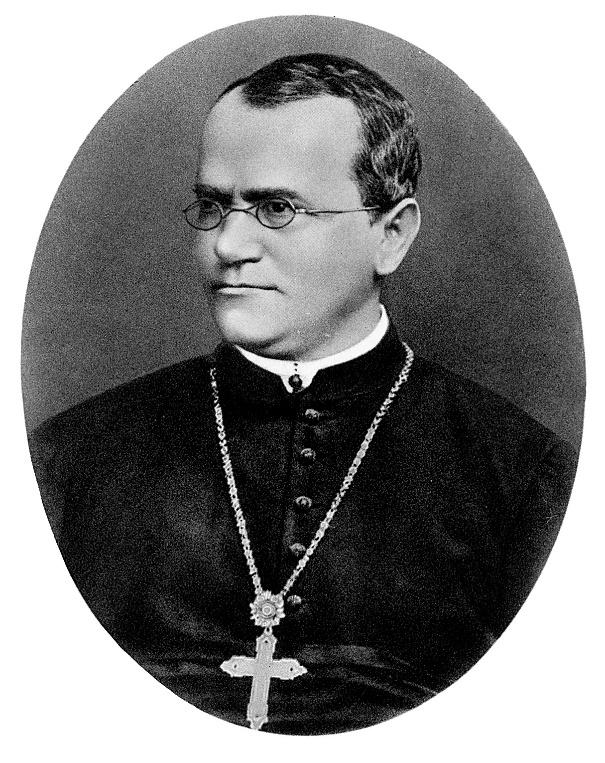
Describe the Mendel’s Law.
Answer
591.6k+ views
Hint: Inheritance is the phenomena by which genes which carry information for traits, are passed on to offsprings in successive generations.
The whole process of heredity depends upon it and this is one of the main reasons why offsprings resemble their parents.
Gregor Mendel conducted several experiments in the 19th century and established the principles of inheritance in the form of his famous laws.
Complete answer: Between 1856-1863, Mendel conducted the famous hybridization experiments the plant species- Pisum sativum.
He particularly selected garden pea due to several factors such as easy growth, its self-pollinating as well as cross-pollinating ability, short life span, and the presence of many contrasting traits.
He carried out monohybrid (for studying one contrasting trait) and dihybrid (for studying two contrasting traits) crosses. The pea plants were made to undergo self-fertilization and the resulting breeds are termed as pure lines.

Additional information: Through these experiments he proposed the famous laws of inheritance:
1. Law of Dominance: It is also known as Mendel’s first law of inheritance. It states that only the dominant trait is expressed in the phenotype of the offspring, and the allele responsible for it (dominant allele) masks the recessive allele.
2. Law of Segregation: This law suggests that during the production of gametes, two copies of each hereditary factor undergo segregation resulting in the inheritance of only one factor from each parent.
3. Law of Independent Assortment: This law states that a pair of traits undergo segregation independent of another pair in the process of gamete formation. As a result of this, different traits get equal opportunities to occur together.
Note: It is important to note that among the three proposed laws, only the law of segregation is universally true. The first mendelian law has an exception of incomplete dominance where neither the dominant nor the recessive allele expresses themselves solely, rather an intermediate trait is obtained in the offsprings. The law of Independent Assortment holds true only for traits that are located on different chromosomes.
The whole process of heredity depends upon it and this is one of the main reasons why offsprings resemble their parents.
Gregor Mendel conducted several experiments in the 19th century and established the principles of inheritance in the form of his famous laws.
Complete answer: Between 1856-1863, Mendel conducted the famous hybridization experiments the plant species- Pisum sativum.
He particularly selected garden pea due to several factors such as easy growth, its self-pollinating as well as cross-pollinating ability, short life span, and the presence of many contrasting traits.
He carried out monohybrid (for studying one contrasting trait) and dihybrid (for studying two contrasting traits) crosses. The pea plants were made to undergo self-fertilization and the resulting breeds are termed as pure lines.

Additional information: Through these experiments he proposed the famous laws of inheritance:
1. Law of Dominance: It is also known as Mendel’s first law of inheritance. It states that only the dominant trait is expressed in the phenotype of the offspring, and the allele responsible for it (dominant allele) masks the recessive allele.
2. Law of Segregation: This law suggests that during the production of gametes, two copies of each hereditary factor undergo segregation resulting in the inheritance of only one factor from each parent.
3. Law of Independent Assortment: This law states that a pair of traits undergo segregation independent of another pair in the process of gamete formation. As a result of this, different traits get equal opportunities to occur together.
Note: It is important to note that among the three proposed laws, only the law of segregation is universally true. The first mendelian law has an exception of incomplete dominance where neither the dominant nor the recessive allele expresses themselves solely, rather an intermediate trait is obtained in the offsprings. The law of Independent Assortment holds true only for traits that are located on different chromosomes.
Recently Updated Pages
Master Class 10 Computer Science: Engaging Questions & Answers for Success

Master Class 10 General Knowledge: Engaging Questions & Answers for Success

Master Class 10 English: Engaging Questions & Answers for Success

Master Class 10 Social Science: Engaging Questions & Answers for Success

Master Class 10 Maths: Engaging Questions & Answers for Success

Master Class 10 Science: Engaging Questions & Answers for Success

Trending doubts
What is the median of the first 10 natural numbers class 10 maths CBSE

Which women's tennis player has 24 Grand Slam singles titles?

Who is the Brand Ambassador of Incredible India?

Why is there a time difference of about 5 hours between class 10 social science CBSE

Write a letter to the principal requesting him to grant class 10 english CBSE

A moving boat is observed from the top of a 150 m high class 10 maths CBSE




